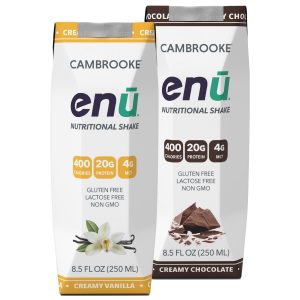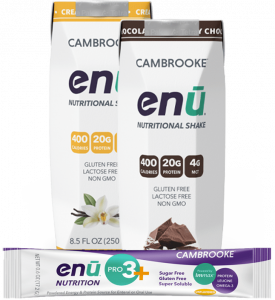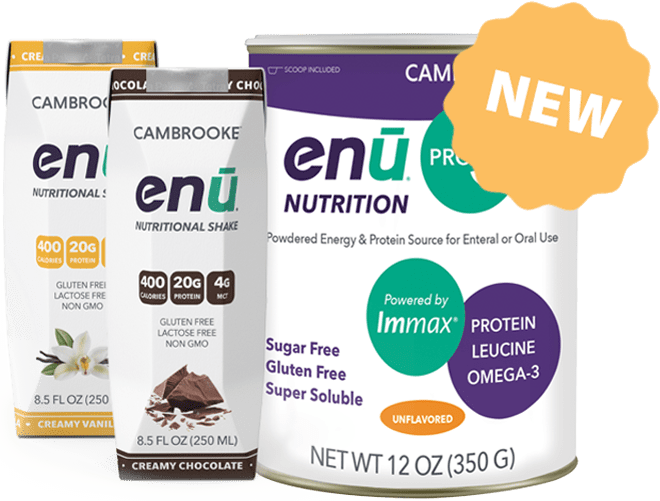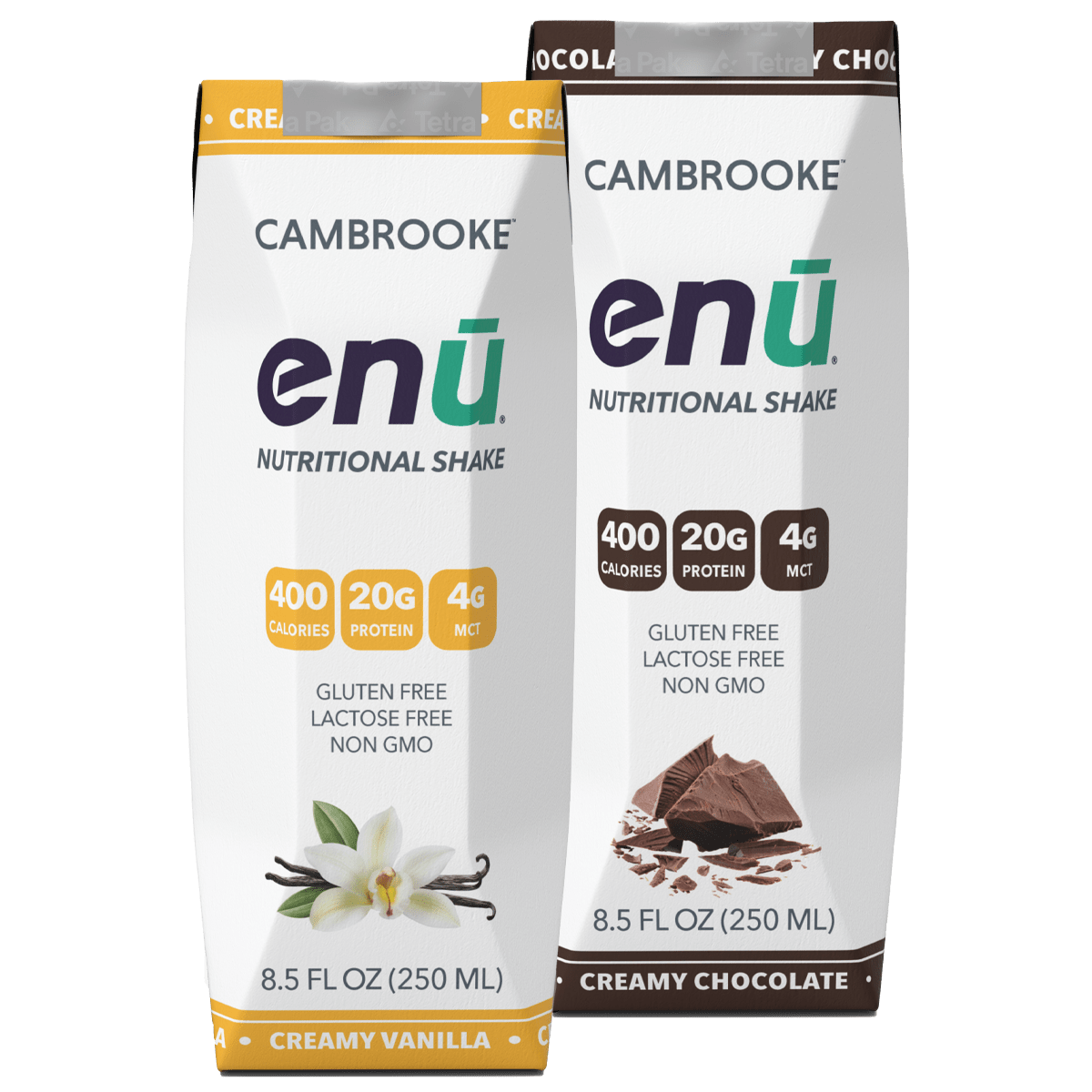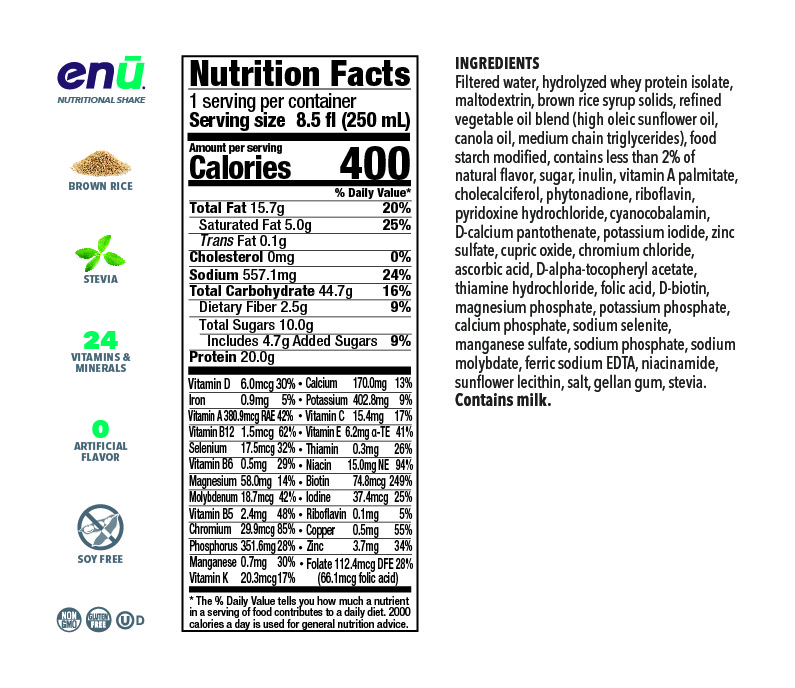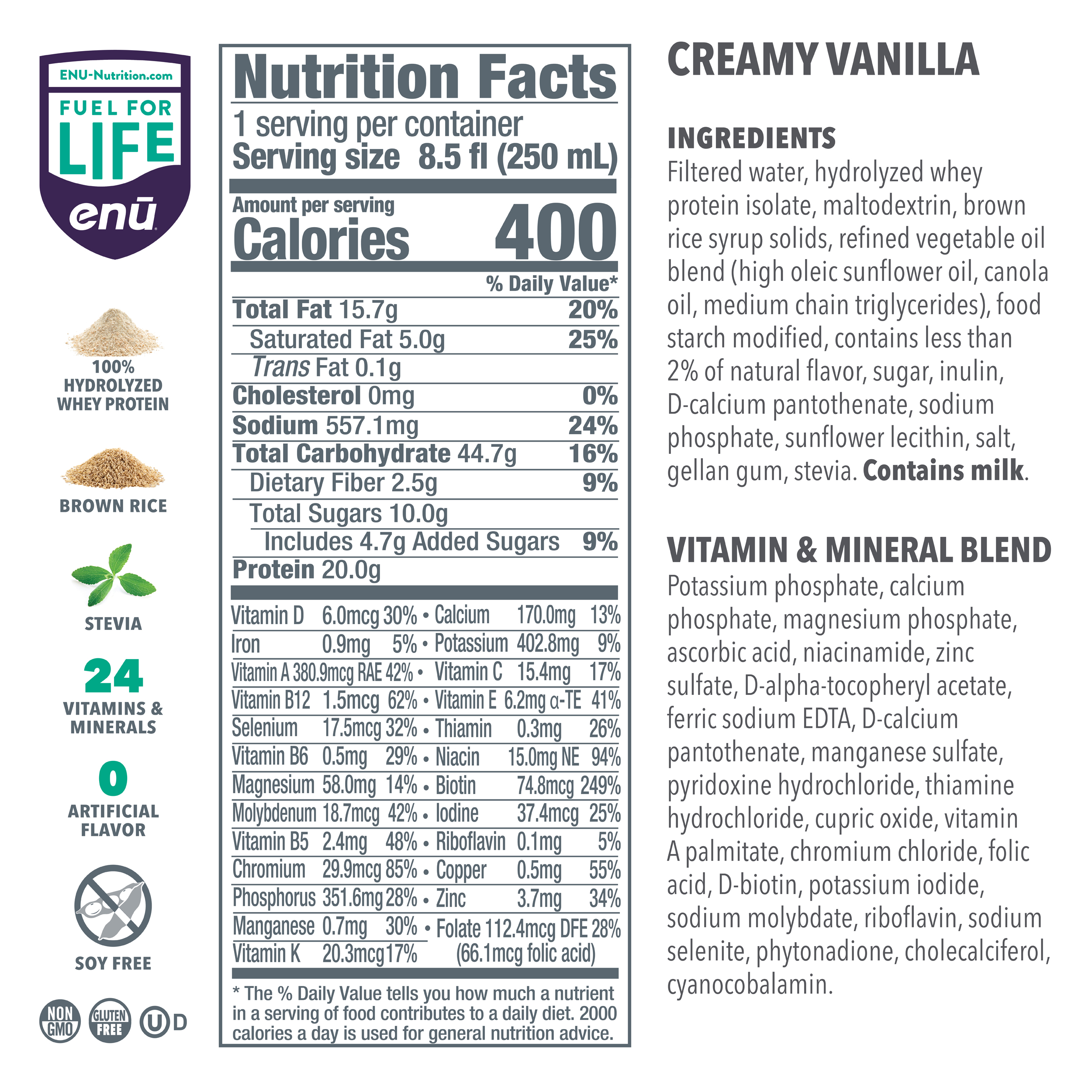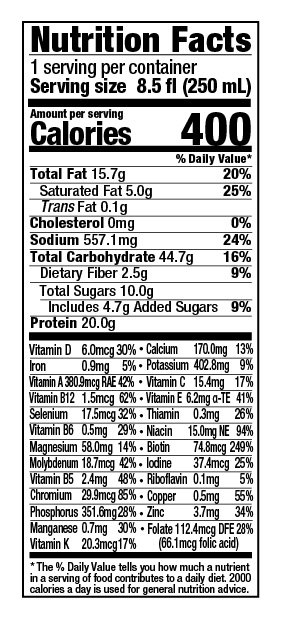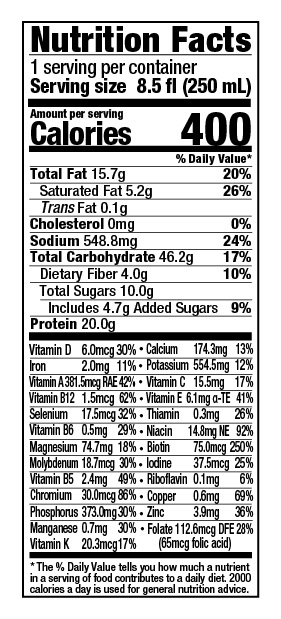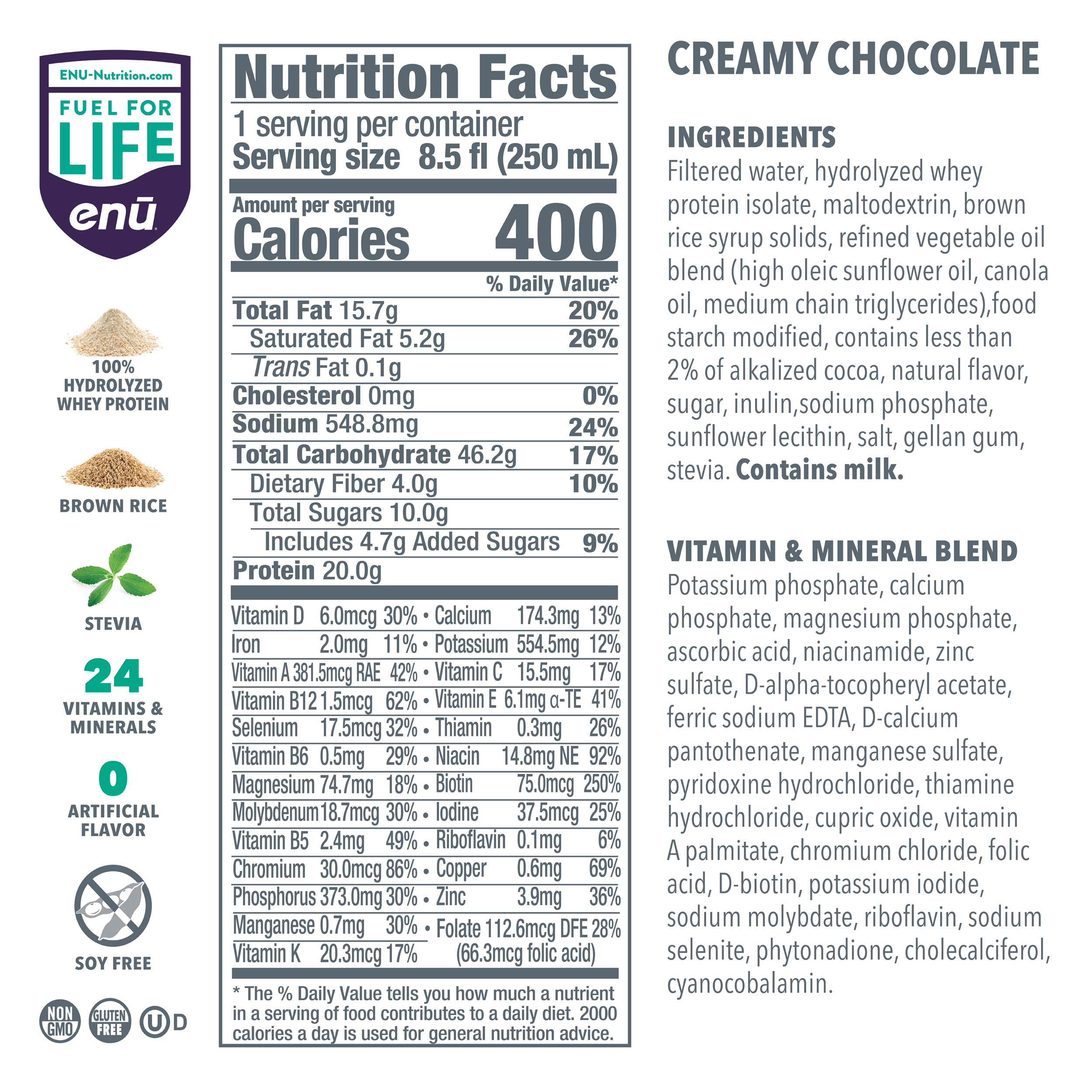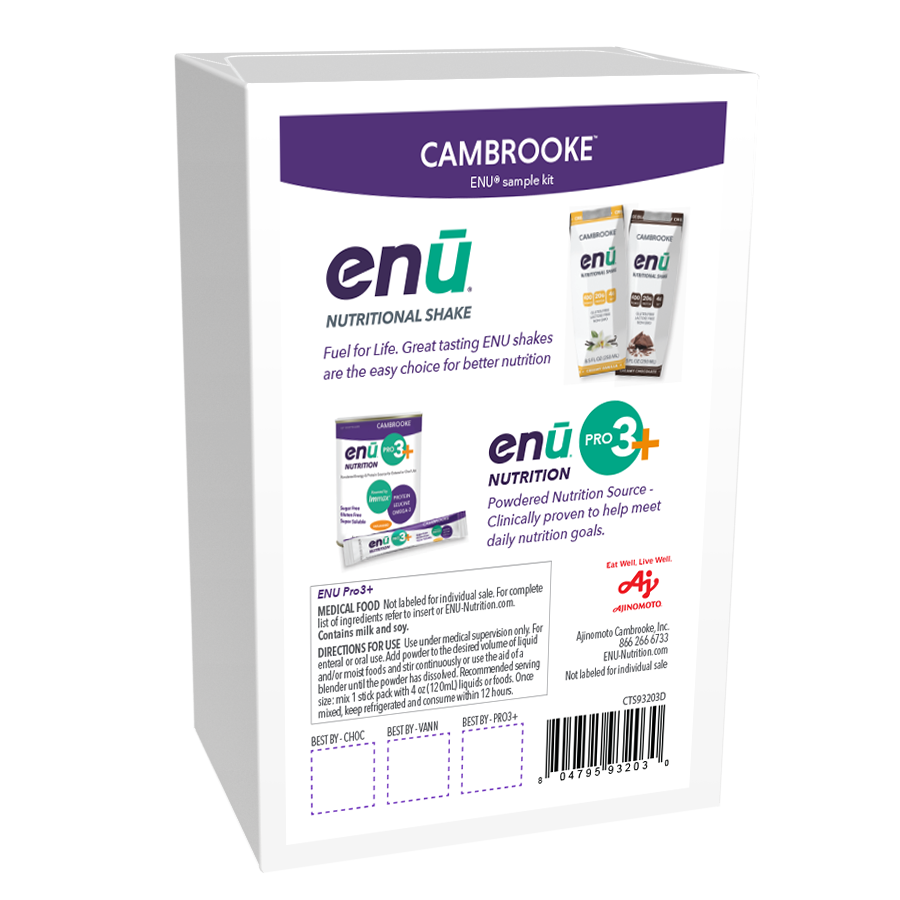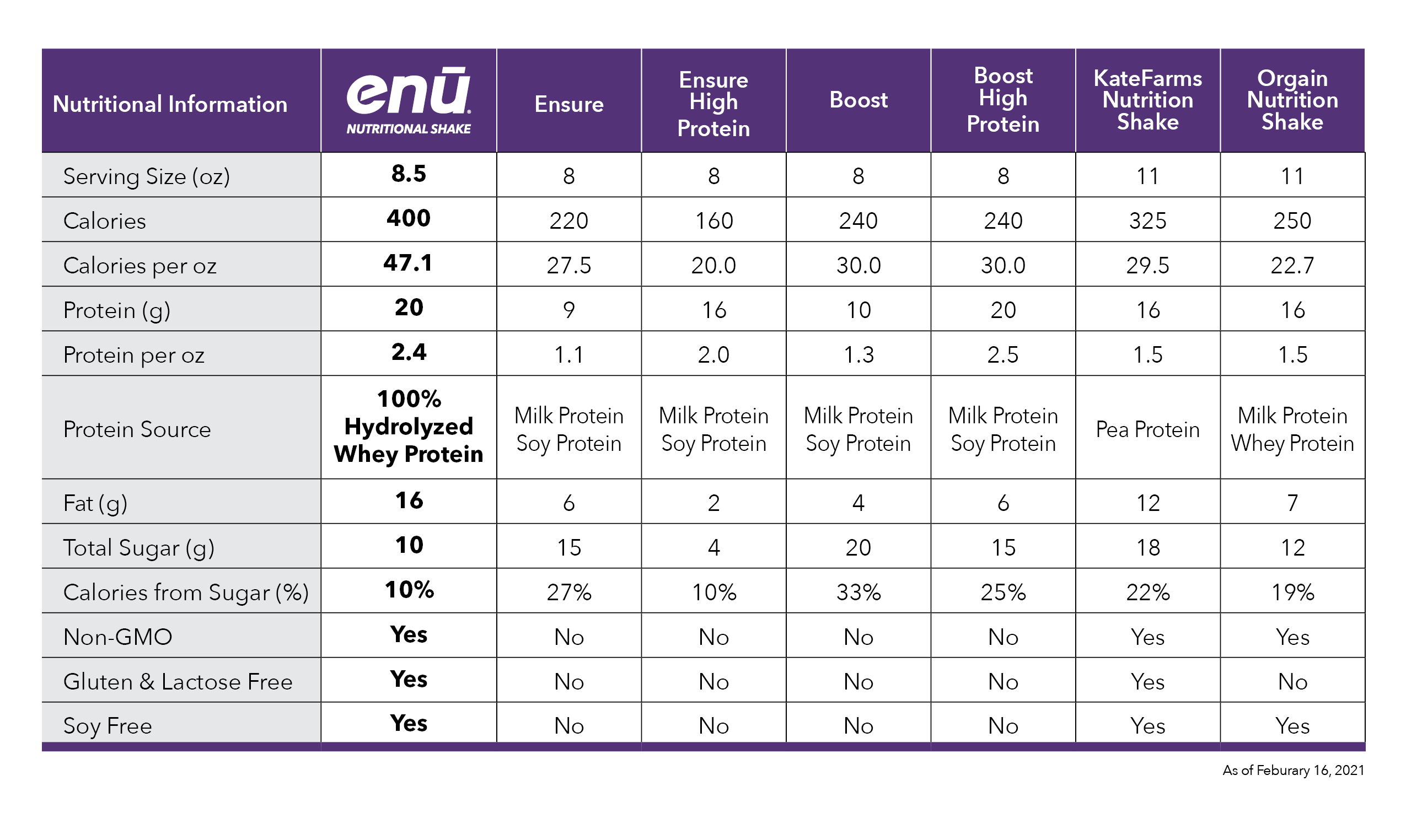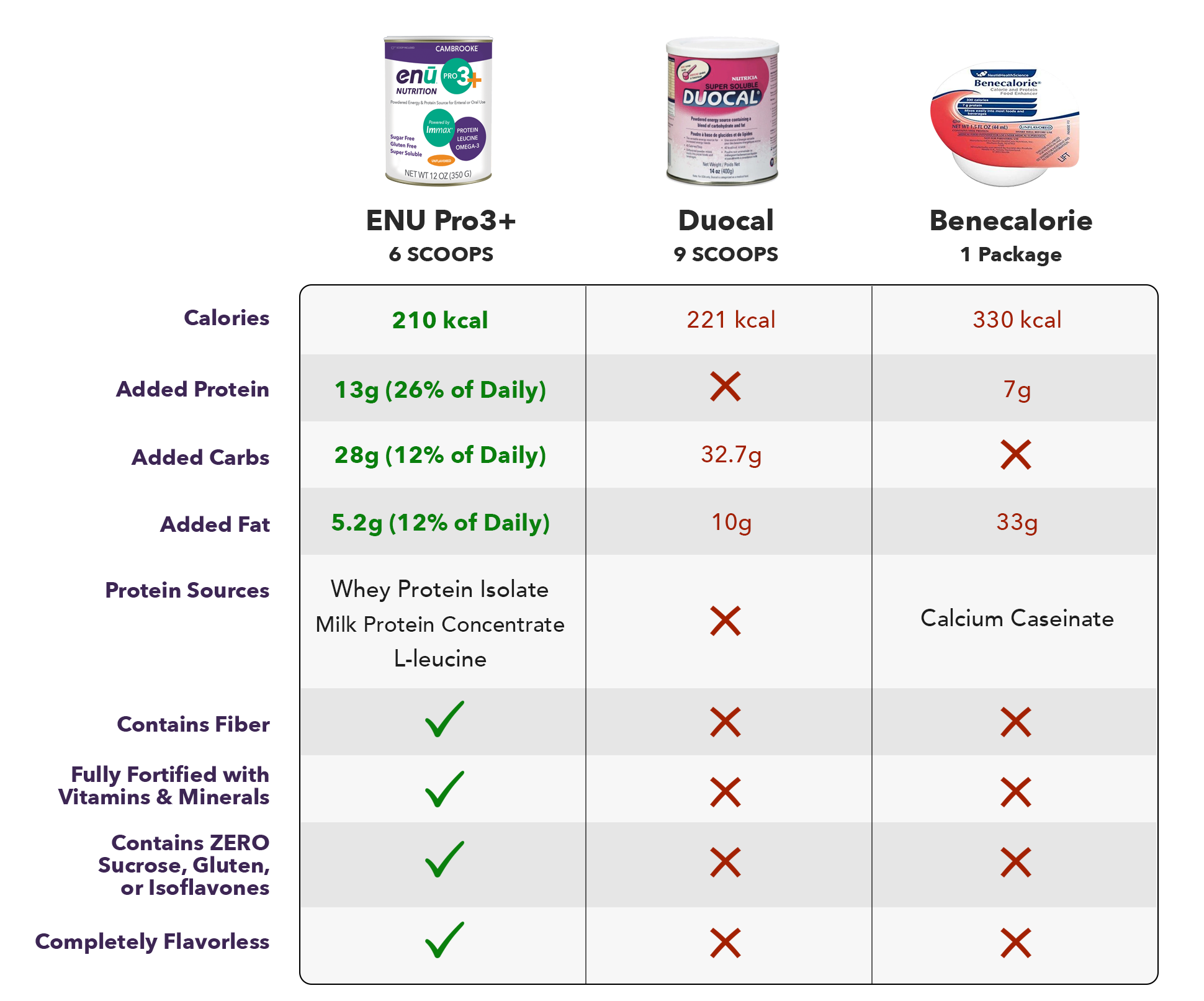
Get a FREE
ENU Intro Pack*
*Just Pay $2.00 Shipping
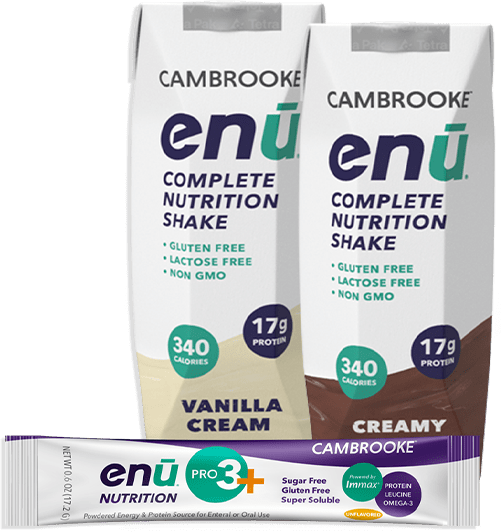
Food Fortification in Today’s World: Is it Necessary?
Alissa Rumsey MS, RD, CDN, CNSC, CSCS
In today’s busy world, people are master multi-taskers – taking conference calls while in transit, eating breakfast in a meeting, working on multiple projects at once. When it comes to keeping up with their daily nutritional needs, they expect their foods to multi-task as well, with different components added to positively impact their health. Historically, food fortification served to address population-wide micronutrient deficiencies. It may be difficult for those of us living in developed countries to remember, but diseases such as goiter (iodine), rickets (vitamin D), beriberi (thiamine), and pellagra (niacin) were once common health problems back in the early 20th century. Today, we rarely see these conditions thanks to food fortification programs. When we do see micronutrient malnutrition in the developed world, it is typically in those adults who have an issue absorbing or utilizing the nutrients they are consuming.
How do people get micronutrients?
There are four main ways that we get micronutrients:
- Diverse diet high in fruits, vegetables, whole grains, and protein-rich animal products
- Supplementation – taking a vitamin/mineral tablet or pill
- Bio-fortication – foods that are engineered to have higher amounts of certain nutrients
- Food fortification – addition of micronutrients to food products already consumed
Micronutrients are highest in fruits, vegetables, whole grains and meats. When people have low appetites and don’t eat enough of these foods, they are at higher risk for developing a deficiency.
What is food fortification?
Food fortification adds essential vitamins and minerals into commonly consumed foods in order to improve nutrition. These vitamins and minerals were not previously present in the foods they are added to. Fortifying commonly eaten foods ensures that the persons diet will include necessary vitamins that would otherwise be lacking. Mass food fortification is that which is aimed at an entire population, while target fortification serves to improve the needs of a specific group of people. Vitamins and minerals may be added to prevent specific illnesses, such as vitamin D in milk for rickets, and folic acid in breads and cereals to prevent neural tube damage of the developing fetus in pregnant women. Globally, 82 countries have legislation in place that mandates fortification of at least one cereal grain as well as wheat flour. 12 countries fortify corn product and 6 countries fortify rice. Table salt is fortified with iodine; milk with vitamins A and D.
What is the overall effect?
Food fortification not only helps to improve overall nutritional status of a population, it also leads to an improved economy. Deficiencies, infections and disease rates all drop, leading to a decreased mortality rate. Food fortification is considered to be the most cost effective and sustainable practice to combat micronutrient malnutrition. Typically socially acceptable, it requires no change in food habits, and can be introduced quickly and effectively.
Today, foods and beverages with added nutritional benefits are great options to help people meet their daily vitamin and mineral needs. This is especially true in two instances:
- People with poor appetites who are eating very little and have low nutrient consumption
- Athletes with very high needs, who are unable to get enough nutrients through regular food.
In these cases, it is important to look for food and drinks that can help to meet 100% of a person’s daily needs. Make sure to read labels to see what nutrients are added, and what percentage of the recommend daily value they meet. For example, one bottle of ENU contains 25% of most key vitamins and minerals, so drinking four bottles per day would help to meet 100% of the daily value.
For more information on food fortification and micronutrient deficiency, please visit https://www.who.int/nutrition/publications/guide_food_fortification_micronutrients.pdf.
Alissa Rumsey, MS, RD, CDN, CNSC, CSCS is a registered dietitian and certified strength and conditioning coach with a private practice in New York City. You can follow her on Twitter @AlissaRumseyRD or visit her website at www.AlissaRumsey.com
